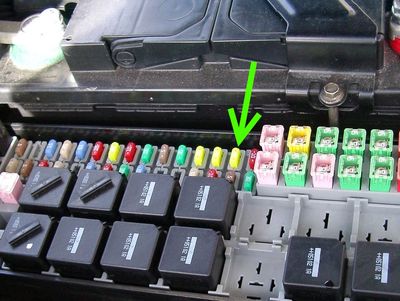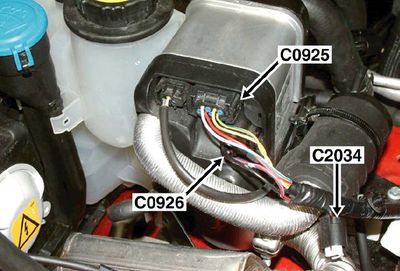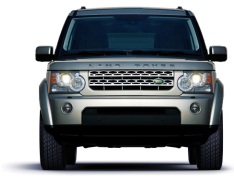Fuel Burning Heater
Discovery 3 TDV6 may be fitted with a Webasto Thermo Top V fuel burning heater, and is used in the Discovery 3 to provide auxiliary heating of the engine coolant during cold weather. This is largely to aid emissions and to speed up cabin warm up.
Contents
Fitment
It is not fitted to all TDV6s. Notably, those in warm climates are not equipped.
Park Heater Functionality
Park heating is when the FBH is operated with the vehicle engine off, to warm up the engine coolant.
Very early Discovery 3's had park heater settings in the Settings Menu but this was removed as part of the Enhancement Programme in 2005.
There are many ways to retrofit park heater functionality to the D3's FBH.
Site member stapldm has created instructions for fitting a park heater timer, with an option for remote control, which effectively retrofits the park heater functionality.
A Webasto 1533 timer can be fitted on its own to provide in-car push-button park heating without remote control.
A modification to the Webasto 1533 timer allows remote operation by using a GSM module (with SIM card) and either a phone call or SMS text message. Alternatively a remote "plip" and receiver can be used in place of the GSM module.
A kit is available from Danhag to operate the FBH and cabin fans from a phone call. A similar kit is available from Bell Auto Services.
Land Rover released an official kit for the Russian Market, based on a Webasto timer.
See below for more information on these options.
Cold Climate Timer
Land Rover did release an option for a pre-heat/cabin warmer timer (Webasto based) to be fitted in cold climates.
Speak to your dealer for information, though it was only released for Russia and is difficult to obtain as a kit in other markets.
As above Stapldm compiled an excellent and very easy to follow write up on how to carry out a
Following on from Stapldm's work Wiggs went a step further for the technophiles by perfecting a
Much later jdhx added details of his implementation using a two button remote to give an on and off button with audible and visual indication of the state of the FBH. This included wiring diagram, parts list (with an alternative source of the webasto plug) and photo.
A kit is available commercially from Danhag in Germany to operate the FBH as a park heater and the cabin fans to warm the interior. See Danhag FBH Kit Notes for installation, configuration and operation notes.
Diagnostics
The FBH unit can be diagnosed using the (free) Webasto software and a custom made loom.
Details of the loom have been supplied by IanNP here: http://disco3.co.uk/forum/post616222.html#616222
The latest Webasto software and manual (2.11) is linked in IanNP's post at http://disco3.co.uk/forum/post716893.html#716893
Further topics
The FBH can also be diagnosed with a Land Rover specific fault code reader - e.g. Faultmate, Autologic or IDS.
Resetting
You may be able to reset a "locked out" (non operational) FBH by removing the power supply from it for a few minutes.
- Turn the engine off, ignition off and remove the key.
- Either:
- remove Fuse 28 from the engine bay fuse box:

- or remove the two-pin connector (C0926 in this photo) from the FBH. The blade of the D3 key can help to remove the clip:

- remove Fuse 28 from the engine bay fuse box:
- Remove one of these and replace after a minute or so.
If this does not reset your FBH then you may have a more complicated error which requires diagnostics. To read and clear these fault(s) you should use one of the diagnostic methods as above.
Automatic Operation - Smoke From Front of Vehicle
Outside air temp below 6 degrees C? Engine temp less than 75 degrees C? Low fuel warning light NOT on?
Then don't worry, its the Webasto Fuel Burning heater starting up.
The function of the heater is to assist the very efficient TDV6 to warm up on cold starts, by burning diesel fuel to directly heat the coolant in the engine. One problem with modern diesels is that they are so efficient that they don't produce enough heat to warm the coolant enough to ensure efficient running.
When it starts (after about 1 minute from initial engine start) it will emit some smoke and steam from the front of the front left wheel arch. As the FBH reaches max power, it will burn cleanly with no smoke. You should not see smoke for more than a minute or so. You should see the smoke emitting from a small vertical exhaust located forward of the left-side front wheel.
You cannot control the operation of the FBH (unless you have modified it), it is fully automatic.
